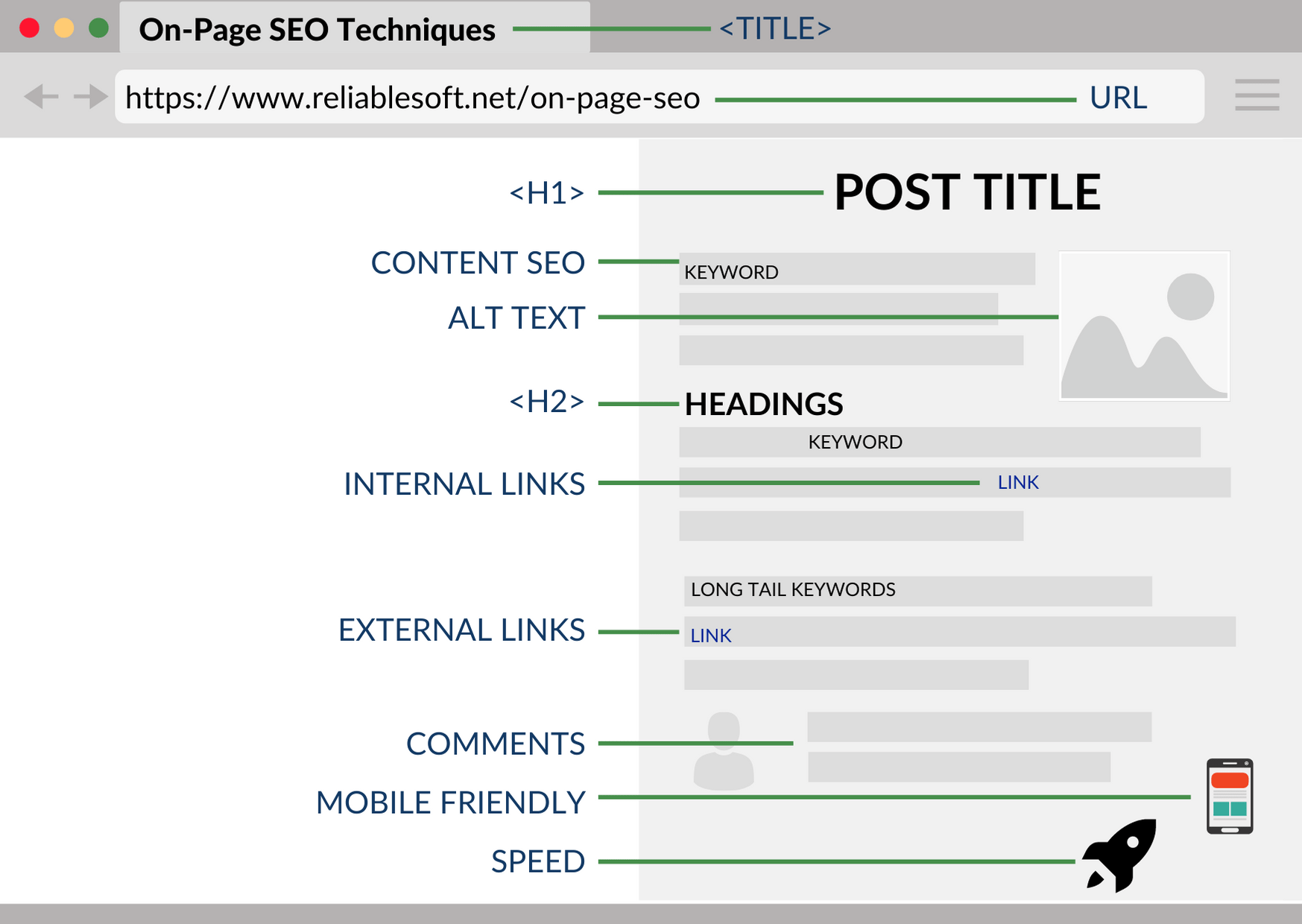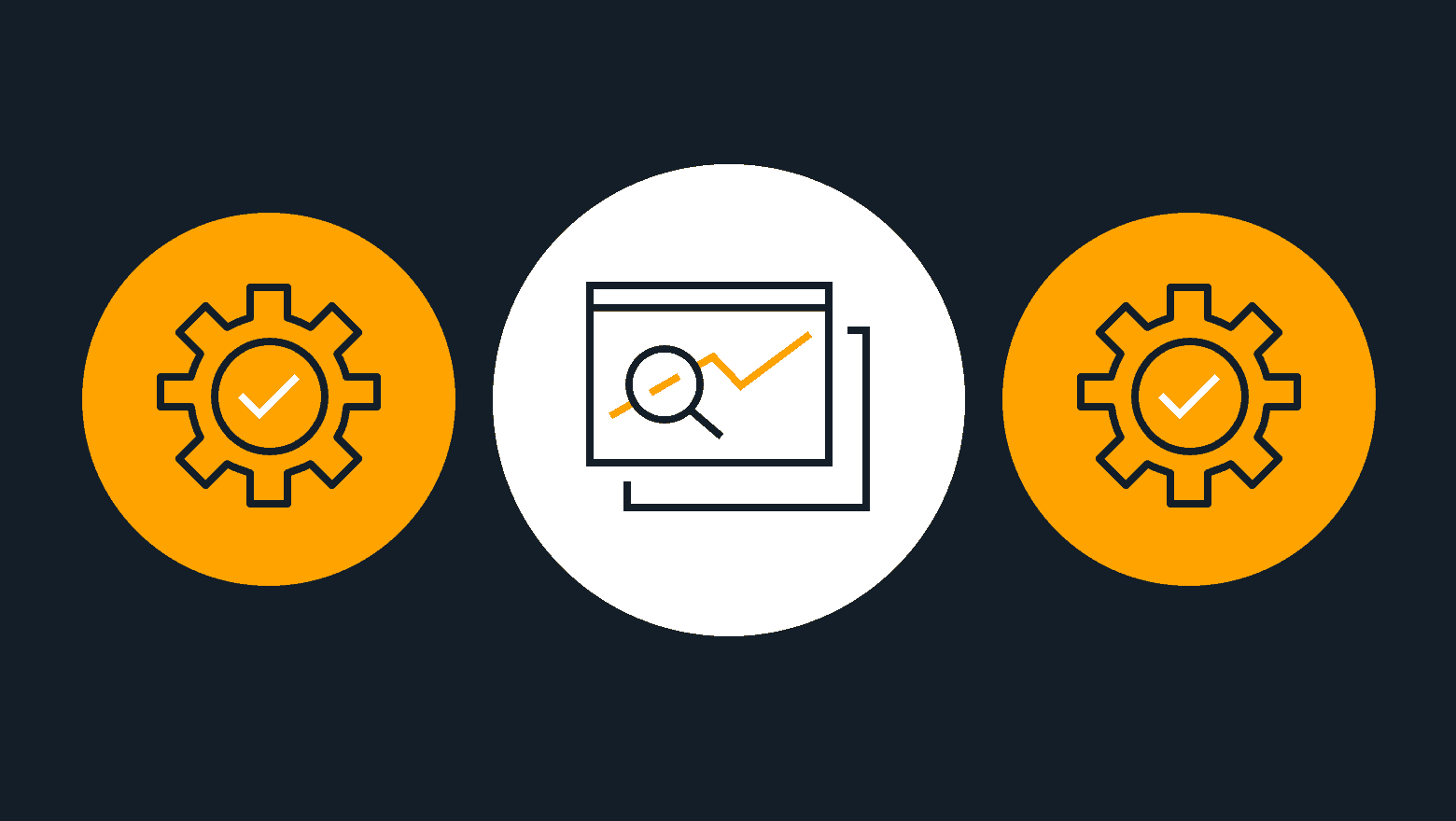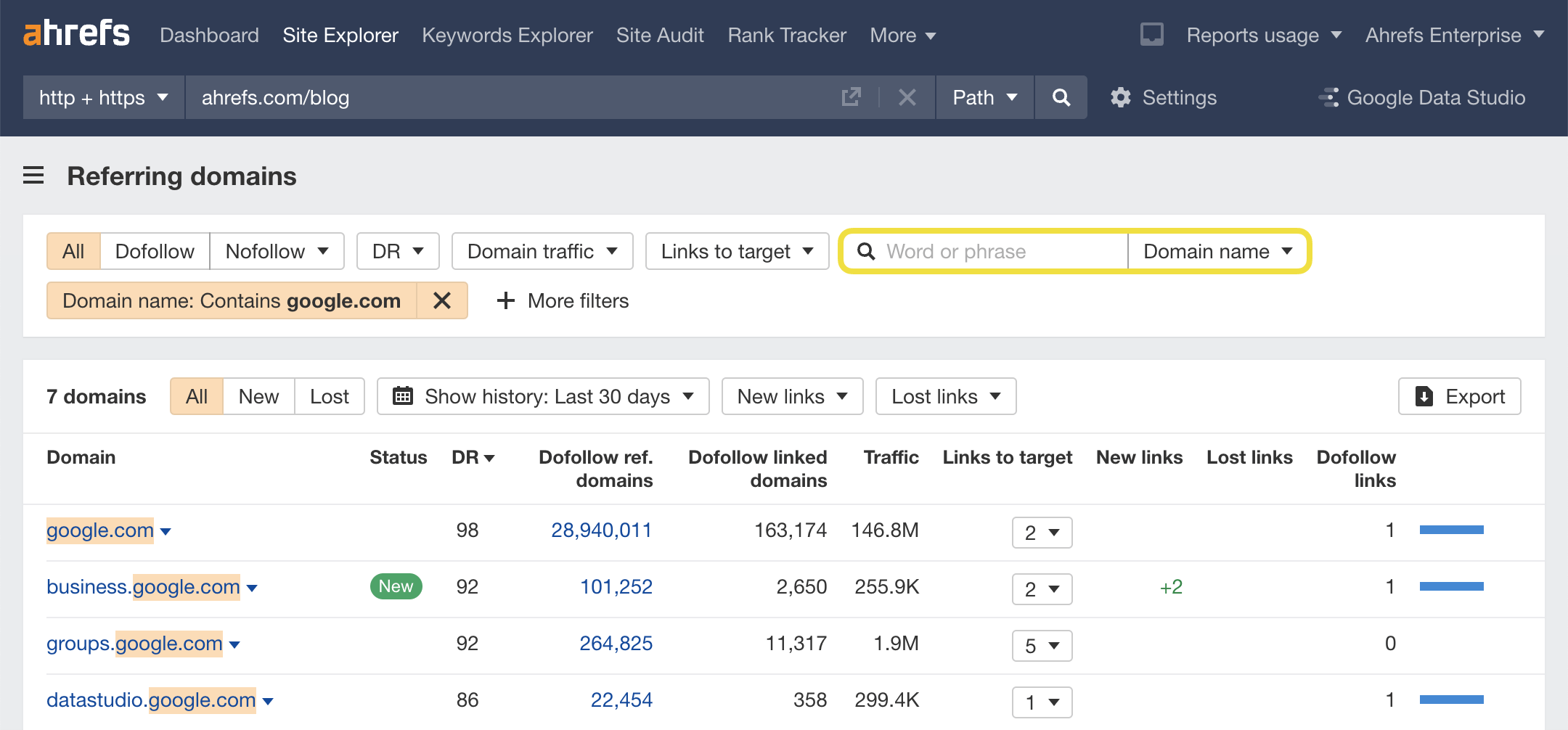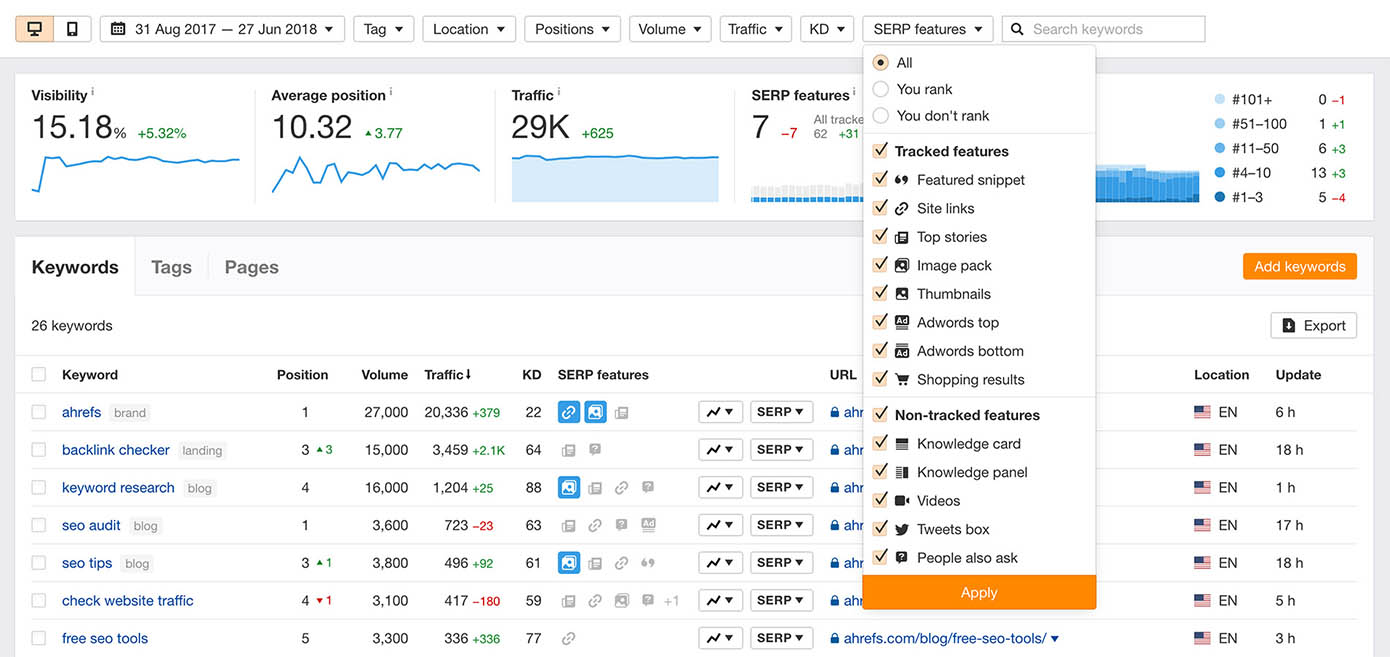[This is a test site and all posts are generated with ChatGPT unless indicated otherwise.]
What is SEO and Why is it Important?
SEO (Search Engine Optimization) is optimizing a website’s content and structure to improve its visibility and ranking on search engines like Google, Bing, and Yahoo. With the vast majority of online experiences starting with a search engine, SEO has become a crucial aspect of digital marketing for businesses of all sizes and industries.
Great SEO strategies and these tools can build higher search engine rankings. his will, in turn, lead to increased website traffic, better brand awareness, and ultimately more revenue for your business.
Overview of Diverse SEO Tools
SEO tools are software programs designed to help website owners and marketers optimize their websites for search engines. These tools can help with keyword research, on-page optimization, technical SEO, backlink analysis, rank tracking, content optimization, and local SEO.
There are many SEO tools available on the market, both free and paid, and choosing the right ones can make a significant difference in your website’s search engine performance. SEO tools can be classified into the following:
- Keyword research tools
- On-page optimization tools
- On-page optimization tools
- Technical SEO tools
- Backlink analysis tools
- Rank tracking tools
- Content optimization tools
- Local SEO tools
A. Keyword Research Tools

Keyword research is the process of identifying and analyzing the words and phrases that people use to search for products or services related to your business. The goal of keyword research is to find keywords with high search volume and low competition that you can use to optimize your website’s content and improve your rankings on search engine results pages (SERPs).
By conducting thorough keyword research, you can ensure that your website’s content is relevant to what your target audience is searching for and increase your chances of getting more traffic to your site.
Popular keyword research tools
1. Google Keyword Planner
Google Keyword Planner is a free keyword research tool provided by Google Ads. It allows you to find keywords related to your business and provides data on search volume, competition, and estimated cost per click. You can also use it to get ideas for ad groups and to see how keywords perform over time.
2. Ahrefs
Ahrefs is a popular SEO tool that includes a powerful keyword research feature. It allows you to search for keywords and see detailed metrics like search volume, keyword difficulty, and clicks data. You can also use Ahrefs to analyze your competitors’ top-ranking keywords and identify content gaps in your own strategy.
3. SEMrush
SEMrush is another comprehensive SEO tool that includes a keyword research feature. It provides a detailed overview of search volume, keyword difficulty, and related keywords. SEMrush also allows you to see the ranking history of a keyword and analyze the top-ranking pages for a particular keyword.
4. Moz Keyword Explorer
Moz Keyword Explorer is a keyword research tool that provides detailed insights into keyword difficulty, search volume, and potential click-through rate (CTR). It also includes a feature that allows you to identify related topics and questions related to your target keyword, making it easier to create content that answers your audience’s questions.
5. Ubersuggest
Ubersuggest is a free keyword research tool that provides a comprehensive overview of a keyword’s search volume, difficulty, and related keywords. It also includes a feature that allows you to see what content is ranking well for a particular keyword, making it easier to create content that can compete.
6. Google Trends
Google Trends is a free tool that allows you to see the popularity of a keyword over time. It provides data on search volume, related topics, and geographical interest. Google Trends is particularly useful for identifying seasonal trends and monitoring changes in search behavior over time.
Conducting thorough keyword research is a crucial aspect of SEO, and there are many tools available to help you do it effectively. By using one or more of these popular keyword research tools, you can ensure that your website’s content is optimized for the right keywords, and improve your chances of getting more traffic and leads from search engines.
B. On-page Optimization Tools

On-page optimization is the practice of optimizing individual web pages in order to rank higher and earn more relevant traffic in search engines. This includes optimizing both the content and HTML source code of a page.
On-page optimization involves optimizing the page’s meta tags, images, content, internal links, and more. The goal of on-page optimization is to make your website more search engine friendly and improve your chances of ranking higher in search engine results pages (SERPs).
Popular On-page Optimization Tools
1. Yoast SEO
Yoast SEO is one of the most popular WordPress plugins for on-page optimization. It provides a comprehensive suite of features that help optimize your content for search engines. This includes tools to help you optimize your meta tags, content, images, internal linking, and more. It also includes features for XML sitemaps, breadcrumbs, and social media optimization.
2. SEOptimer
SEOptimer is a free website analysis tool that provides a comprehensive analysis of your website’s on-page optimization. It includes a detailed report on your website’s technical SEO, content, and user experience. SEOptimer also provides actionable recommendations for improving your on-page optimization.
3. Google Search Console
Google Search Console is a free tool provided by Google that helps webmasters monitor and maintain their site’s presence in Google search results. It includes a wide range of features for on-page optimization, including the ability to submit sitemaps, monitor search traffic, and analyze search queries. Google Search Console also provides information on crawl errors, index status, and security issues.
4. Moz On-Page Grader
Moz On-Page Grader is a tool that provides on-page optimization suggestions based on your target keyword. It provides detailed recommendations for optimizing your meta tags, content, images, and more. Moz On-Page Grader also provides a score for your on-page optimization efforts and offers suggestions for improvement.
5. Screaming Frog
Screaming Frog is a desktop application that allows you to crawl websites and analyze on-page optimization factors. It provides detailed information on meta tags, content, images, and internal links. Screaming Frog also allows you to analyze your site’s structure and identify issues that may be impacting your search engine rankings.
6. Woorank
Woorank is a comprehensive on-page optimization tool that provides a detailed analysis of your website’s on-page factors. It includes a wide range of features, including a site audit, keyword analysis, and competitive analysis. Woorank also provides recommendations for optimizing your website’s content, structure, and user experience.
In conclusion, on-page optimization is a crucial aspect of SEO, and there are many tools available to help you optimize your website’s content and structure. By using one or more of these popular on-page optimization tools, you can improve your website’s search engine rankings and earn more relevant traffic from search engines.
Technical SEO Tools

Technical SEO is the practice of optimizing your website’s technical elements in order to improve its visibility and ranking on search engines. It includes optimizing your website’s structure, speed, security, and other technical aspects that impact your website’s ability to be crawled, indexed, and ranked by search engines.
Technical SEO is essential for ensuring that search engines can easily crawl and index your website, and for improving its overall user experience.
Popular Technical SEO Tools
1. Screaming Frog
Screaming Frog is a popular desktop application that allows you to crawl and analyze your website’s technical SEO. It provides detailed information on your website’s meta tags, headers, content, images, and internal links. Screaming Frog also allows you to analyze your site’s structure and identify issues that may be impacting your search engine rankings.
2. Google Analytics
Google Analytics is a powerful web analytics tool that provides detailed information on your website’s traffic and user behavior. It allows you to track and analyze your website’s performance, including page views, bounce rates, and conversion rates. Google Analytics also provides insights into your website’s search engine traffic, including keyword data, traffic sources, and more.
3. Google Tag Manager
Google Tag Manager is a free tool that allows you to add and manage tracking tags on your website. This includes tracking tags for Google Analytics, AdWords, and other marketing platforms. Google Tag Manager simplifies the process of adding tracking tags to your website and allows you to manage them from a single platform.
4. SEMrush
SEMrush is a comprehensive SEO tool that provides detailed insights into your website’s technical SEO. It includes features for site audits, site health monitoring, and technical SEO analysis. SEMrush also provides detailed information on your website’s backlink profile, keyword rankings, and competitive analysis.
5. Ahrefs
Ahrefs is another comprehensive SEO tool that provides detailed insights into your website’s technical SEO. It includes features for site audits, site health monitoring, and technical SEO analysis. Ahrefs also provides detailed information on your website’s backlink profile, keyword rankings, and competitive analysis.
6. GTmetrix
GTmetrix is a website speed testing tool that provides detailed insights into your website’s loading speed and performance. It allows you to analyze your website’s performance on different devices and network speeds, and provides detailed recommendations for improving your website’s speed and performance.
In conclusion, technical SEO is essential for improving your website’s visibility and ranking on search engines. By using one or more of these popular technical SEO tools, you can ensure that your website is optimized for search engines, and provide your visitors with a better user experience.
Backlink Analysis Tools

Backlink analysis is the practice of analyzing the backlinks pointing to a particular website in order to understand its link profile and identify opportunities for improving its search engine ranking. Backlinks are one of the most important ranking factors for search engines, and understanding your website’s backlink profile is essential for improving its visibility and ranking on search engine results pages (SERPs).
Backlink analysis involves analyzing the quality, quantity, and relevance of the backlinks pointing to your website and those pointing to your competitors.
Popular Backlink Analysis Tools
1. Ahrefs
Ahrefs is a popular backlink analysis tool that provides detailed insights into your website’s backlink profile. It allows you to analyze the quality, quantity, and relevance of your backlinks and those of your competitors. Ahrefs also provides detailed information on referring domains, anchor text, and top-performing content.
2. Majestic
Majestic is another popular backlink analysis tool that provides detailed insights into your website’s backlink profile. It includes features for analyzing link quality, anchor text, and referring domains. Majestic also provides historical backlink data, which allows you to track your website’s backlink profile over time.
3. Moz Link Explorer
Moz Link Explorer is a comprehensive backlink analysis tool that provides detailed insights into your website’s backlink profile. It includes features for analyzing link quality, anchor text, and referring domains. Moz Link Explorer also provides detailed insights into the domain authority and page authority of your website, as well as those of your competitors.
4. SEMrush
SEMrush is a comprehensive SEO tool that includes features for backlink analysis. It provides detailed insights into your website’s backlink profile, as well as those of your competitors. SEMrush also provides information on the top-performing content in your industry, which can help you identify opportunities for building high-quality backlinks.
5. CognitiveSEO
CognitiveSEO is another comprehensive SEO tool that includes features for backlink analysis. It provides detailed insights into your website’s backlink profile, as well as those of your competitors. CognitiveSEO also includes features for identifying toxic backlinks and disavowing them, which can help improve your website’s search engine ranking.
In conclusion, backlink analysis is essential for improving your website’s visibility and ranking on search engines. By using one or more of these popular backlink analysis tools, you can analyze the quality, quantity, and relevance of your website’s backlinks and those of your competitors. This can help you identify opportunities for building high-quality backlinks and improving your search engine ranking over time.
Rank-tracking Tools

Rank tracking is the practice of monitoring your website’s search engine ranking position (SERP) for specific keywords over time. It involves tracking the ranking position of your website and your competitors’ websites for keywords that are relevant to your business or industry.
Rank tracking is important because it allows you to identify opportunities for improving your website’s search engine ranking, as well as monitor the impact of your SEO efforts.
Popular Rank-tracking Tools
1. SEMrush
SEMrush is a comprehensive SEO tool that includes a rank-tracking feature. It allows you to track your website’s ranking position for specific keywords over time, as well as those of your competitors. SEMrush also provides detailed insights into the search volume, CPC, and difficulty of each keyword, which can help you identify opportunities for improving your website’s search engine ranking.
2. Ahrefs
Ahrefs is another comprehensive SEO tool that includes a rank-tracking feature. It allows you to track your website’s ranking position for specific keywords over time, as well as those of your competitors. Ahrefs also provides detailed insights into the search volume, CPC, and difficulty of each keyword, as well as backlink data and competitor analysis.
3. AccuRanker
AccuRanker is a dedicated rank-tracking tool that provides real-time ranking data for your website and your competitors. It allows you to track your website’s ranking position for specific keywords across multiple search engines, as well as those of your competitors. AccuRanker also provides detailed insights into search volume, keyword difficulty, and historical ranking data.
4. Serpstat
Serpstat is a comprehensive SEO tool that includes a rank-tracking feature. It allows you to track your website’s ranking position for specific keywords over time, as well as those of your competitors. Serpstat also provides detailed insights into search volume, keyword difficulty, and competitor analysis.
5. Google Search Console
Google Search Console is a free tool provided by Google that allows you to track your website’s ranking position for specific keywords on Google. It provides real-time ranking data, as well as detailed insights into search volume, click-through rate, and keyword performance.
In conclusion, rank tracking is an important practice for monitoring your website’s search engine ranking position over time. By using one or more of these popular rank-tracking tools, you can track your website’s ranking position for specific keywords, as well as those of your competitors. This can help you identify opportunities for improving your website’s search engine ranking and monitor the impact of your SEO efforts over time.
Content Optimization Tools

Content optimization is the practice of optimizing your website’s content to improve its relevance and ranking in search engine results pages (SERPs). It involves analyzing your content and identifying opportunities for improvement based on keyword research, user intent, and competitor analysis.
By optimizing your content, you can improve its visibility in search engine results pages and attract more traffic to your website.
Popular Content Optimization Tools
1. Clearscope
Clearscope is a content optimization tool that uses artificial intelligence to help you create content that ranks well in search engine results pages. It analyzes your content and provides real-time recommendations for improving its relevance and ranking based on keyword research, user intent, and competitor analysis. Clearscope also provides insights into content performance and competitor analysis.
2. SurferSEO
SurferSEO is a content optimization tool that provides detailed insights into content relevance and ranking factors. It analyzes your content and provides recommendations for improving its relevance and ranking based on keyword research, user intent, and competitor analysis. SurferSEO also provides insights into backlink data and competitor analysis.
3. MarketMuse
MarketMuse is a content optimization tool that uses artificial intelligence to help you create content that ranks well in search engine results pages. It analyzes your content and provides real-time recommendations for improving its relevance and ranking based on keyword research, user intent, and competitor analysis. MarketMuse also provides insights into content performance and competitor analysis.
4. Yoast SEO
Yoast SEO is a popular WordPress plugin that provides content optimization recommendations based on SEO best practices. It analyzes your content and provides real-time recommendations for improving its relevance and ranking based on keyword research, user intent, and readability. Yoast SEO also provides insights into content performance and metadata optimization.
5. SEMrush Content Marketing Platform
SEMrush is a comprehensive SEO tool that includes a content optimization feature. It allows you to analyze your content and identify opportunities for improvement based on keyword research, user intent, and competitor analysis. SEMrush also provides insights into content performance, metadata optimization, and backlink data.
In conclusion, content optimization is an important practice for improving the relevance and ranking of your website’s content in search engine results pages. By using one or more of these popular content optimization tools, you can analyze your content and identify opportunities for improvement based on keyword research, user intent, and competitor analysis. This can help you attract more traffic to your website and improve your search engine rankings over time.
Local SEO Tools

Local SEO is the practice of optimizing your website and online presence to improve its visibility in local search results. Local search results are typically displayed for queries that include a geographic location, such as “restaurants near me” or “plumber in San Francisco”.
Local SEO involves optimizing your website’s content and structure, building local citations and backlinks, and managing your online reviews and reputation.
Popular Local SEO Tools
1. Moz Local
Moz Local is a tool that helps you manage your online listings and citations across multiple directories and platforms. It allows you to verify your business information, correct inaccuracies, and monitor your listings for changes or duplicate content. Moz Local also provides insights into your local search performance and competitor analysis.
2. BrightLocal
BrightLocal is a local SEO tool that helps you manage your local listings and citations across multiple directories and platforms. It allows you to track your rankings, monitor your online reviews and reputation, and analyze your local search performance. BrightLocal also provides insights into competitor analysis and citation opportunities.
3. Yext
Yext is a local SEO tool that helps you manage your online listings and citations across multiple directories and platforms. It allows you to update your business information, manage your online reviews and reputation, and monitor your listings for changes or duplicate content. Yext also provides insights into your local search performance and competitor analysis.
4. Google My Business
Google My Business is a free tool that allows you to manage your business information on Google Search and Maps. It allows you to update your business information, monitor and respond to customer reviews, and track your local search performance. Google My Business also provides insights into local search trends and competitor analysis.
5. Whitespark Local Citation Finder
Whitespark Local Citation Finder is a tool that helps you find local citation opportunities for your business. It allows you to search for relevant citation sources based on your industry and location, and provides insights into your existing citations and competitor analysis. Whitespark Local Citation Finder also provides tools for citation tracking and management.
In conclusion, local SEO is an essential practice for businesses that want to improve their visibility in local search results. By using one or more of these popular local SEO tools, you can manage your online listings and citations, monitor your online reviews and reputation, and analyze your local search performance. This can help you attract more local customers to your business and improve your local search rankings over time.
Bottomline: The Right SEO Tools Can Boost Your SEO Efforts
Using the right SEO tools can be the difference between success and failure in today’s competitive digital landscape. The right SEO tools can help you identify the right keywords to target, optimize your website’s content and structure, analyze your website’s performance, and improve your website’s search engine rankings.
By using the right SEO tools, you can save time, money, and resources while achieving better results in your SEO efforts. Therefore, it is important to choose the right SEO tools that fit your business needs and goals and to stay updated with the latest SEO trends and best practices to stay ahead of the competition.

